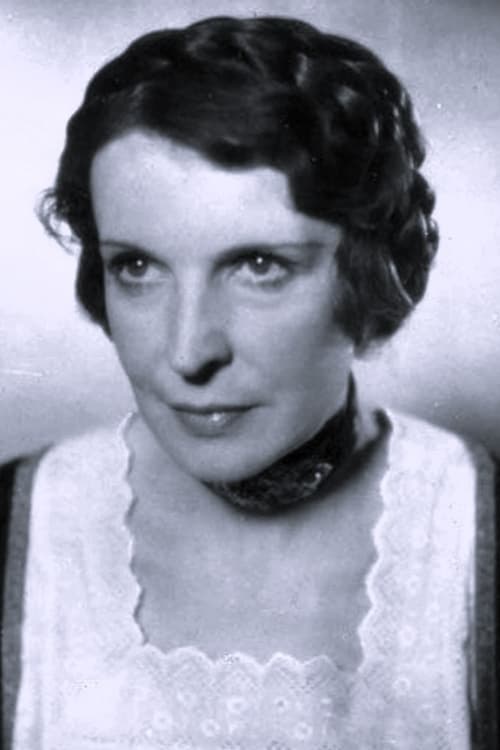
|
Opium (1919)
Character: Maria - Gesellius' Wife
In China, Professor Gesellius has completed his long research on the many uses of opium. When he is about to return home, he hears about a special variety that produces fabulous sensations because of the way it is made, but can also cause the total destruction of the mind and body of the person who consumes it.
|
|
|
|

|
Das große Licht (1920)
Character: N/A
Lorenz Ferleitner has worked his way up from a poor but gifted farm boy to a recognized master builder. When a new cathedral is to be built, he is given the honor of carrying out the task. He would like to commission the unknown young painter Fritz Rasmussen to decorate the dome. The director of the art academy, Professor Marquardt, however, wants to employ his untalented nephew for the painting work. A bitter conflict unfolds.
|
|

|
Prinz Kuckuck (1919)
Character: N/A
The niece and nephew of an eccentric millionaire try to get a share of the now deceased millionaire's inheritance from his adopted son who delights in squandering it. Considered lost.
|
|

|
Det sovende Hus (1926)
Character: Elisabeth
As their shared wealth disappears, Elisabet’s love for her husband Richard also evaporates. She leaves him and finds a new husband with his finances in order. When the new husband subsequently leaves her and her daughter falls ill, Elisabet understands she is at fault and asks for Richard’s forgiveness. However, he’s been hiding in Italy and doesn’t respond to her inquiries. But then everything changes when a young woman from the past suddenly comes knocking on his door.(stumfilm.dk)
|
|
|
|

|
Martha (1936)
Character: N/A
At the start of the 18th century, British Queen Anne, inspired by her German born lady in waiting, emancipates the country's farmers and peasants.
|
|

|
Napoleon auf St. Helena (1929)
Character: Madame Bertrand
Napoleon at Saint Helena (German: Napoleon auf Sankt Helena) is a 1929 German silent historical film directed by Lupu Pick and starring Werner Krauss, Hanna Ralph and Albert Bassermann. The film depicts the final years of Napoleon between 1815 and 1821 during his period of exile on the British Atlantic island of Saint Helena following his defeat at Waterloo.
|
|

|
Der Turm des Schweigens (1925)
Character: Liane
Eva lives in the sinister Tower with her father, a mad inventor, and her grandfather. The aviator Wilfred Durian and his lovely wife live nearby in the town. But Durian's famous flight across the Australian desert was not all it seems... and when his 'dead' partner Arved Holl is rescued by Eva and comes to claim his former fiancée's hand, the whole house of cards is about to come tumbling down. Meanwhile, Eva's own family history is not quite as she had always believed...
|
|

|
Decameron Nights (1924)
Character: Lady Violante
A Saracen sultan's disguised son loves an amnesiac Moslem princess.
|
|

|
Die Nibelungen: Siegfried (1924)
Character: Brunhild
Siegfried, son of King Siegmund of Xanten, travels to Worms, capital of the Burgundian kingdom, to ask King Gunther for the hand of his sister, the beautiful Kriemhild.
|
|
|
|

|
Der Schädel der Pharaonentochter (1920)
Character: N/A
A pharaonic tragedy to the content that spans six different eras. In the first episode, the emergence and dramatic end of the love story between the pharaoh's daughter Princess Amnertis and her beloved Tirhaka is told until the latter comes to a violent death. From this drama arises a curse, which in the following episodes has had far-reaching effects over the centuries. Everyone who possesses the skull of the long-lost pharaoh's daughter must die violently until the day the skull is sunk in the sea.
|
|

|
Helena (1924)
Character: Andromache
Helena is a 1924 German silent drama film directed by Manfred Noa and starring Edy Darclea, Vladimir Gajdarov and Albert Steinrück. The film was based on the poem the Iliad by Homer. It was released in two separate parts: The Rape of Helen and The Fall of Troy. It was produced by Bavaria Film at the Emelka Studios in Munich. The film was made on an epic scale with thousands of extras, and large sets which rivalled those of the larger Berlin-based UFA.
|
|
|
|














